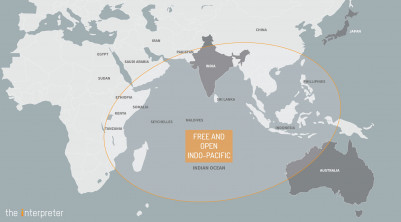
It is doubtless that a rising China will succeed in promoting its Belt and Road Initiative (BRI) in coming years. The key questions are the degree of success it will have, and how it will change the Indo-Pacific region. Xi Jinping’s Chinese Dream envisions comprehensive China-centered governance within the geographical footprint of BRI in accordance with the norms, institutions, and values of the Communist Party of China (CPC) by 2049. However, the BRI and the larger Chinese Dream agenda of which it is a key component are ever more clearly at odds with liberal governance norms that have prevailed in the Indo-Pacific region since the end of the Cold War. Whether China will fully realize its ambitions depends on how others react. Liberal stakeholders that wish to preserve this order cannot stop China’s rise, but they can act to counter China’s geostrategy peacefully before it elbows aside liberal governance to institute a top-down China-centered co-prosperity sphere by 2049. A simple military-strategic response to BRI would fail to meet the BRI challenge on the ground as well as fail to attract adequate developing country support. To respond effectively, liberal stakeholders need a trade and development initiative specifically designed to counter the BRI. A broad Indo-Pacific governance framework can draw on lessons learned from existing sub-regional forums and institutions. Key stakeholders can draw on existing human and financial resources in governments, international institutions, and the private sector currently devoted to global programs and repurpose them to power the liberal Indo-Pacific initiative. This defensive strategy can co-exist peacefully with BRI; will attract active developing country cooperation; and will create new opportunity and growth all around. And by preserving economic openness and choice within the region, every country would remain free to pursue whatever dream it wished.
© 2019 ICS All rights reserved.
Powered by Matrix Nodes